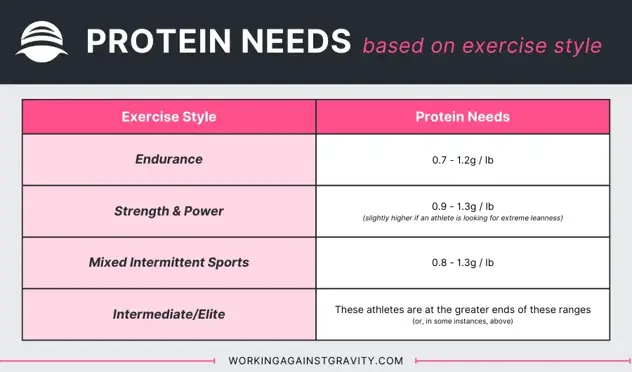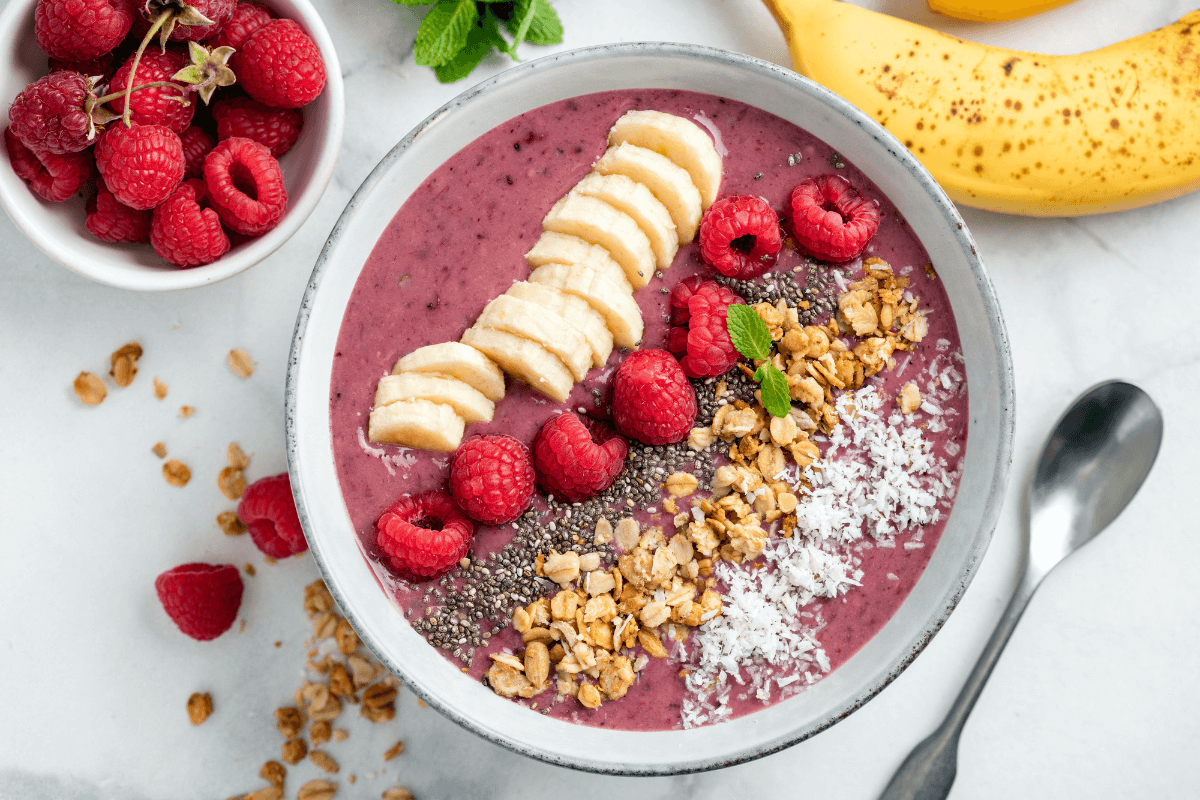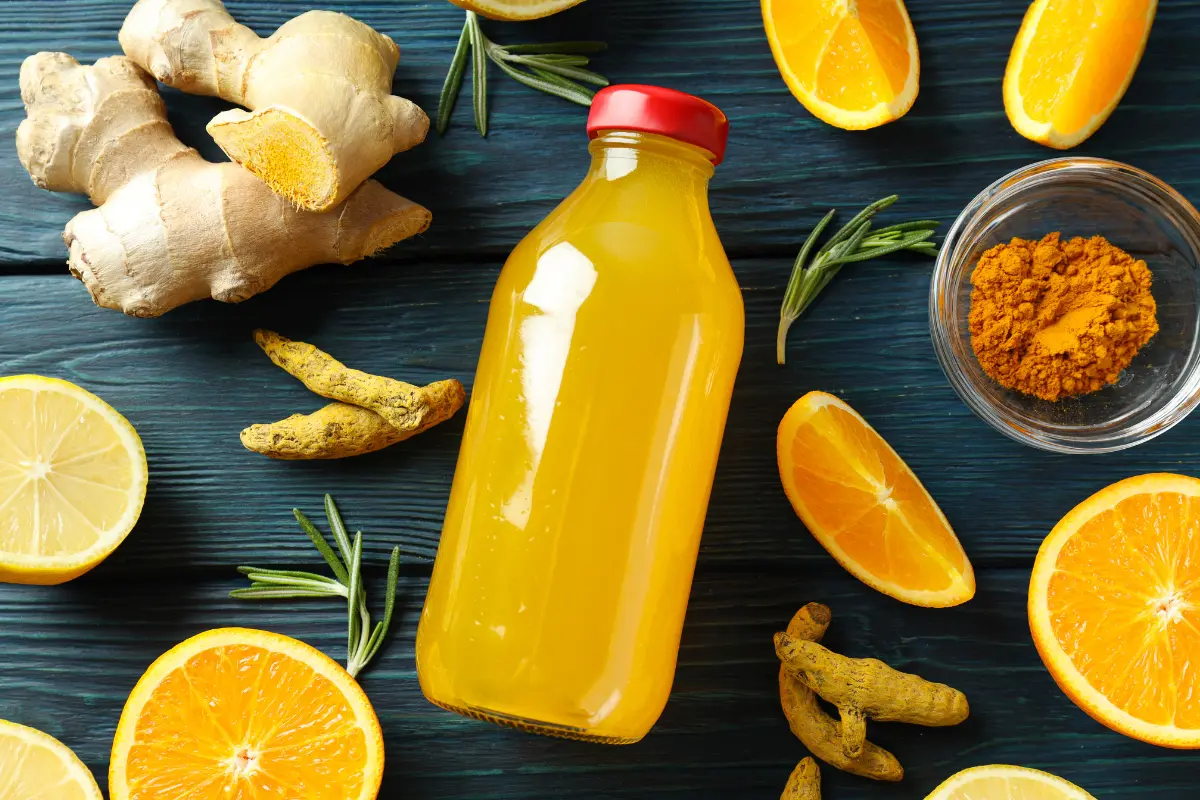
Run faster, bike faster, swim faster.
As an endurance athlete, optimizing your nutrition can help you do things faster. But there are other (surprising) reasons nutrition for endurance athletes is important. Today, we’re tackling why nutrition matters for optimal performance and a few unique benefits proper nutrition has on how you feel throughout your training, competition, and day-to-day life.

Nutrition for Endurance Athletes: Why It Matters
Endurance athletes have unique dietary needs. The intensity and duration of endurance exercise increase overall calorie requirements, and specific macro- and micronutrient ratios are important for optimizing performance.
Endurance athletes may need higher ratios of carbohydrates and fat and a bit less protein than an Olympic weight lifter, CrossFitter, or other strength and power athletes [1].
Advertisement

From there, specific micronutrients become important to hone in on. Magnesium may help reduce muscle cramps. Selenium and vitamin E are antioxidants that protect cells from oxidative damage. Vitamin C aids in the reduction of muscle soreness, and vitamin D and calcium work together to support bone health and density [2].
Eating a variety of whole food sources can help you optimize your performance as an endurance athlete—you’ll be able to train hard, recover efficiently, and perform at a higher level. But, there are other, often overlooked, benefits proper nutrition plays in overall health.
Three Reasons to Focus On Your Nutrition as an Endurance Athlete
Advertisement
1. Gut Health and Immune System Support
Engaging in intense physical activity can temporarily suppress your immune system [3]. If you don’t prioritize recovery alongside your exercise, the temporary suppression can become not-so-temporary. This can lead to decreased recovery, illness, and even injury [3]. Proper nutrition can help mitigate these risks.
Gut Microbiome and Athletic Performance
About 70-80% of your immune cells are present in your gut [4]. So, it stands to reason that a healthy gut supports a healthy immune system.
Your gut microbiome (the collection of microorganisms in your digestive tract) aids in nutrient absorption and energy production and ensures a healthy inflammatory response through exercise and recovery [3].
Gut-Healthy Food Suggestions
Specific foods help support a healthy gut. Take a peek at the infographic below for suggestions and learn how each vitamin impacts immunity in this article.

Advertisement
2. Mental Focus and Cognitive Function
Endurance exercise requires physical endurance. But what about mental toughness? Studies have shown that mental toughness correlates with positive endurance training and competition outcomes [5, 6].
Nutrients like omega-3 fatty acids, B vitamins, and antioxidants contribute to brain health, focus, and cognitive function, helping athletes stay sharp during training and on race day [7]. These nutrients are found in foods like:
- Leafy greens like kale and spinach
- Fatty fish like salmon, cod, and pollack
- Berries like strawberries, blueberries, and blackberries
- Nuts like walnuts and almonds
Here are a few more healthy omega-3 suggestions:

Advertisement
3. Injury Prevention
It is common knowledge that proper nutrition helps with recovery from daily exercise. However, proper nutrition can also aid in injury prevention and help with recovery from injury if it occurs [8,9].
Endurance athletes—especially women—are at higher risk of developing stress fractures than other members of the population due to the intensity, duration, and style of their training and competition [10].
A well-balanced diet rich in nutrients like calcium, vitamin D, and vitamin K supports bone health and reduces the risk of stress fractures and other injuries. Foods that may support healthy bones and joints include (but are not limited to) [11]:
- Bone broth
- Fortified milk and other dairy products
- Prunes and figs
- Tofu
- Berries
- Leafy greens
- Sardines and salmon
-
Almonds
Advertisement
Nutrition for Endurance Athletes: Where to Get Support
As an endurance athlete, you can support your athletic performance and other—more subtle—aspects of your health by focusing on proper nutrition.
The first step is eating enough overall calories and ensuring those calories are comprised of the proper ratio of carbohydrates, fats, and protein based on your training style, frequency, intensity, and duration. From there, focusing on mostly whole foods high in specific vitamins and minerals will ensure you’re making the most of your food choices.
If you’re wondering how many macros you need or you’re struggling to add more whole foods to your diet, a 1-on-1 nutrition coach can help. Your WAG Coach will consider your food preferences and schedule and give you personalized macros, weekly support, and suggestions to put their advice into action.
Schedule a Free Intro Call
Working Against Gravity has led the macro tracking and health space for over a decade. Our team doesn’t just understand the science of nutrition—we’ve spent years mastering the art of tailoring it to fit your life. That means no cookie-cutter plans, just real strategies that have worked for over 30,000 people.
Schedule a free call with our team to learn how working with a 1-on-1 WAG coach will help you reach your goals.



